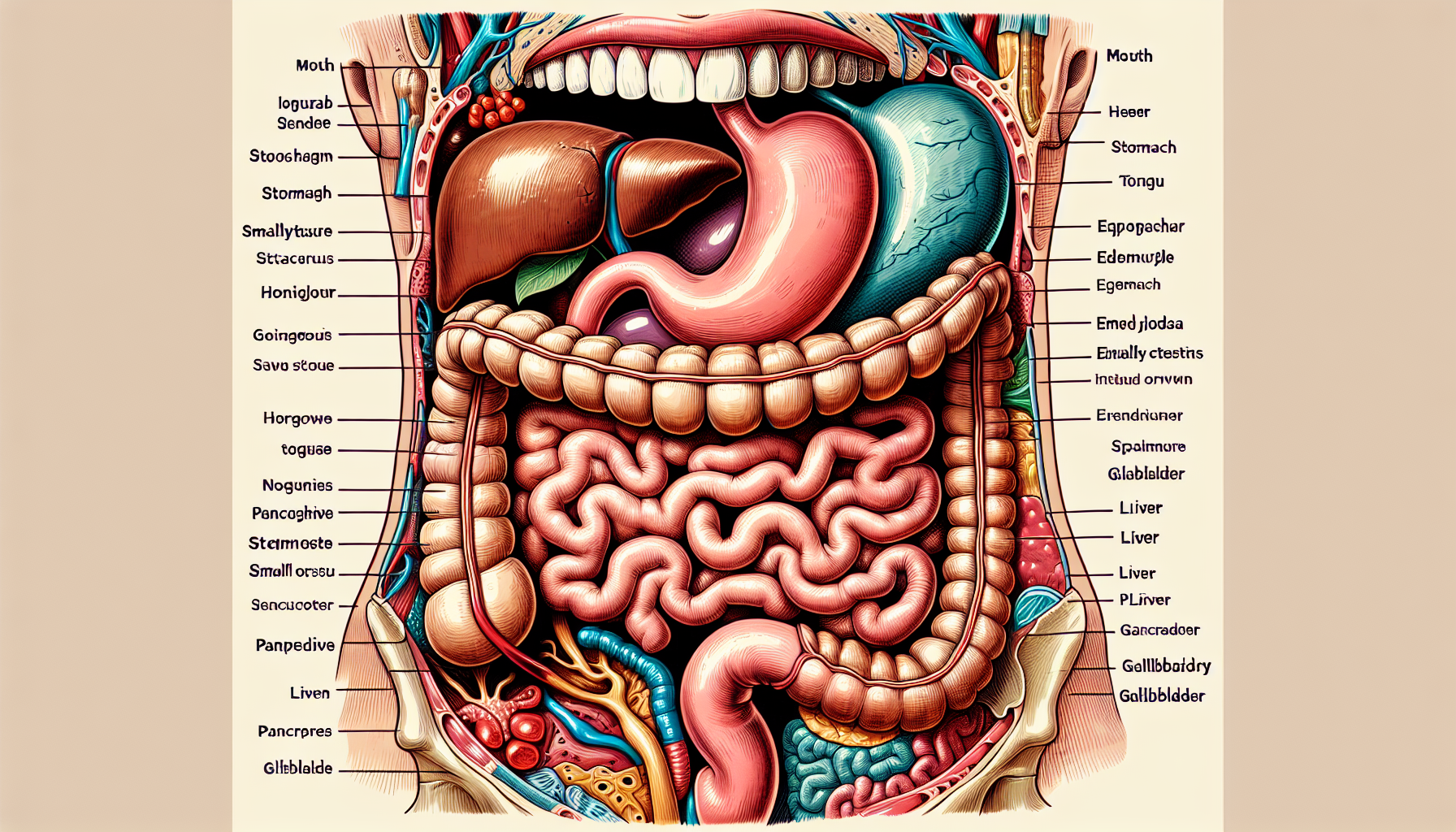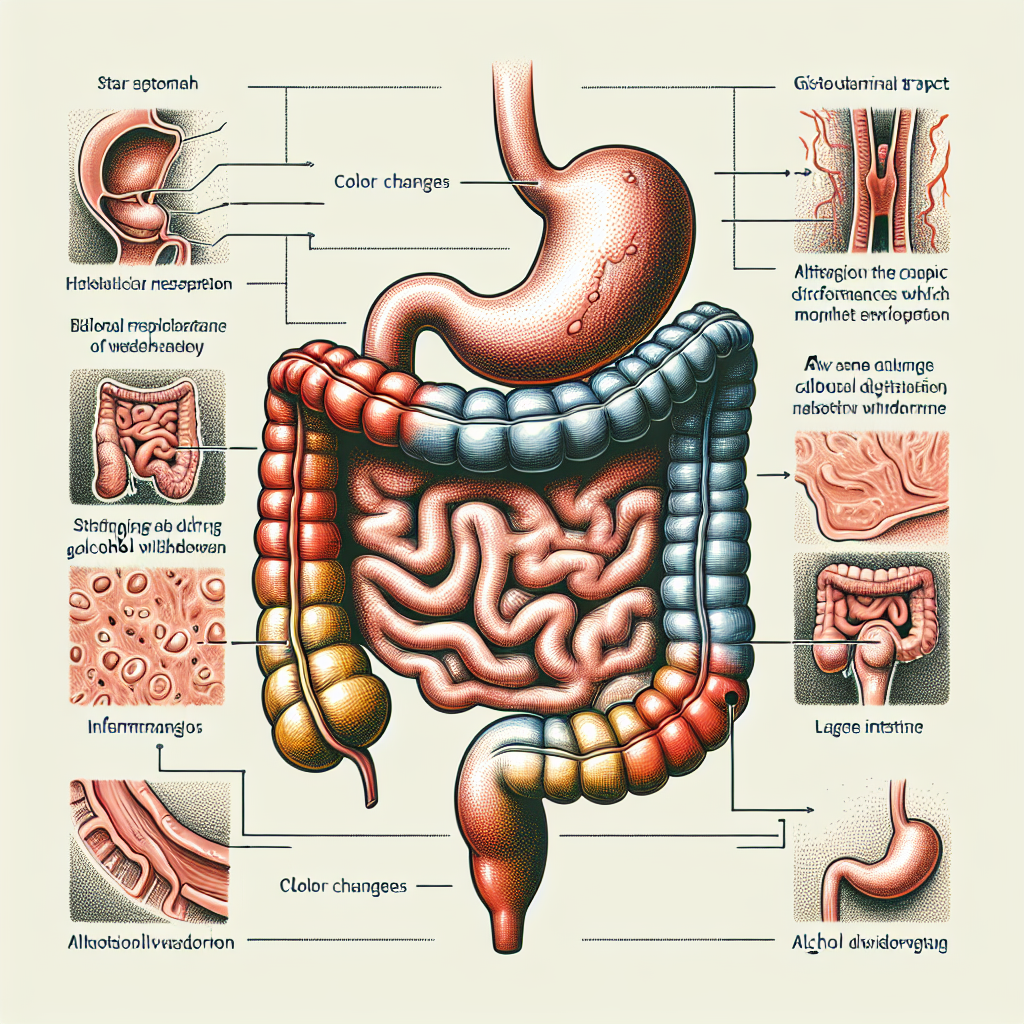Alcohol consumption has been a part of human culture for centuries, often associated with social gatherings, celebrations, and even certain dietary habits. However, the impact of alcohol on the body, and particularly on the digestive system, is a subject of increasing concern in the medical community. When an individual who has been consuming alcohol heavily over an extended period stops drinking, alcohol withdrawal can trigger a range of physiological responses, including significant effects on digestive health.
Alcohol affects the digestive system in various ways, from altering the balance of gut microbiota to influencing the secretion of digestive enzymes. Withdrawal from alcohol, therefore, can lead to a complex array of symptoms and health issues that need to be carefully managed.
Understanding Alcohol’s Impact on Digestive Health
Chronic alcohol consumption can cause inflammation of the stomach lining, pancreatitis, and liver disease, which are serious conditions that may become life-threatening. The liver, being a primary organ affected by alcohol, plays a crucial role in digestion by processing nutrients and filtering toxins. Alcohol-induced liver damage can disrupt these vital processes.
During withdrawal, the body begins to adjust to the absence of alcohol, and this adjustment can cause discomfort and potential complications. For instance, nausea, vomiting, diarrhea, and appetite changes are common during the initial stages of withdrawal. These symptoms occur as the gastrointestinal tract attempts to recalibrate its functions without the presence of alcohol.
The Role of Gut Microbiota
The gut microbiota is a complex and dynamic community of microorganisms that play a crucial role in health and disease. Alcohol can disrupt the delicate balance of this ecosystem, leading to dysbiosis, which is linked to a range of digestive and systemic health issues. During alcohol withdrawal, the gut microbiota starts to recover, which can affect digestive health and function.
For more insights into the importance of gut microbiota, consider exploring The Link Between Gut Health and Autoimmune Diseases and How to Mitigate the Effects of Antibiotics on the Gut.
Alcohol Withdrawal and Digestive Symptoms
Withdrawal from alcohol can result in a variety of symptoms that affect the digestive system, including:
- Gastrointestinal discomfort: Cramping, bloating, and pain are common as the digestive system adjusts to the absence of alcohol.
- Changes in bowel habits: Constipation or diarrhea may occur, which can affect nutrient absorption and hydration.
- Appetite fluctuations: Individuals may experience a loss of appetite or, conversely, an increased appetite as their metabolic processes change.
- Reflux and heartburn: These can be a result of changes in stomach acid production and the function of the esophageal sphincter.
Managing Digestive Health During Withdrawal
Proper management of digestive health during alcohol withdrawal is essential. A balanced diet rich in prebiotic and probiotic foods can support the recovery of gut microbiota. Hydration is also critical, as withdrawal often leads to fluid loss. In addition, medications may be prescribed to manage specific symptoms, such as antiemetics for nausea or antidiarrheals for diarrhea.
Additionally, understanding the Advances in Probiotic Therapy for Digestive Disorders can provide valuable information for those seeking to support their digestive health during this challenging time.
Dietary Interventions
A focus on nutrition is vital during alcohol withdrawal. Emphasizing foods that promote gut health, such as fiber-rich fruits and vegetables, lean proteins, and healthy fats, can aid in managing digestive symptoms. Moreover, avoiding spicy and fatty foods that can irritate the digestive tract is advisable.
For more detailed dietary guidance, the article on Assessing the Impact of Vegetarian Diets on Digestive Health offers insights into how different dietary patterns can influence digestive wellness.
Professional Support
Medical supervision during alcohol withdrawal is often necessary, especially for those with a history of heavy alcohol use. Healthcare providers can offer tailored advice and treatment, including medications to ease withdrawal symptoms and support for related health issues. For those undergoing withdrawal, it’s also important to address other aspects of health, such as Digestive Health, which is intricately linked to overall wellbeing.
External Resources for Further Information
- The National Institute on Alcohol Abuse and Alcoholism provides resources on understanding alcohol’s impact on the body, including the digestive system. NIAAA Alcohol Facts and Statistics
- Gastroenterology research journals, such as the American Journal of Gastroenterology, often publish studies on the effects of alcohol on digestive health. AJG Alcohol and Digestive Health
- The American Society of Addiction Medicine offers guidelines on the management of alcohol withdrawal, which includes considerations for digestive health. ASAM Clinical Practice Guidelines
Long-Term Recovery and Digestive Health
Achieving long-term recovery from alcohol dependence involves more than just overcoming the initial withdrawal phase. It requires an ongoing commitment to maintaining digestive health and overall wellness. Adopting a lifestyle that supports gastrointestinal health, including regular exercise, stress management, and a balanced diet, is key to preventing relapses and promoting a healthy digestive system.
The Importance of Regular Medical Check-Ups
Regular check-ups with healthcare providers can help monitor the recovery of the digestive system and catch any potential issues early. Liver function tests, for example, can assess the impact of past alcohol use and guide dietary and lifestyle interventions for liver health.
Mental Health and Digestive Health
The connection between the gut and brain is well-documented, and stress can exacerbate digestive symptoms. Managing mental health through therapy, support groups, and stress-reduction techniques is essential for holistic recovery.
To understand more about the gut-brain axis, the article on Assessing the Health of the Gut-Brain Axis can be a valuable resource.
Conclusion
Alcohol withdrawal can have profound effects on the digestive system, but with the right approach, these challenges can be managed effectively. By prioritizing gut health, seeking medical support, and adopting a healthy lifestyle, individuals can navigate the withdrawal process and support their digestive system’s recovery. As research continues to unveil the complexities of alcohol’s impact on digestion, tailored interventions and preventative strategies will play a crucial role in enhancing long-term health outcomes for those recovering from alcohol dependence.



